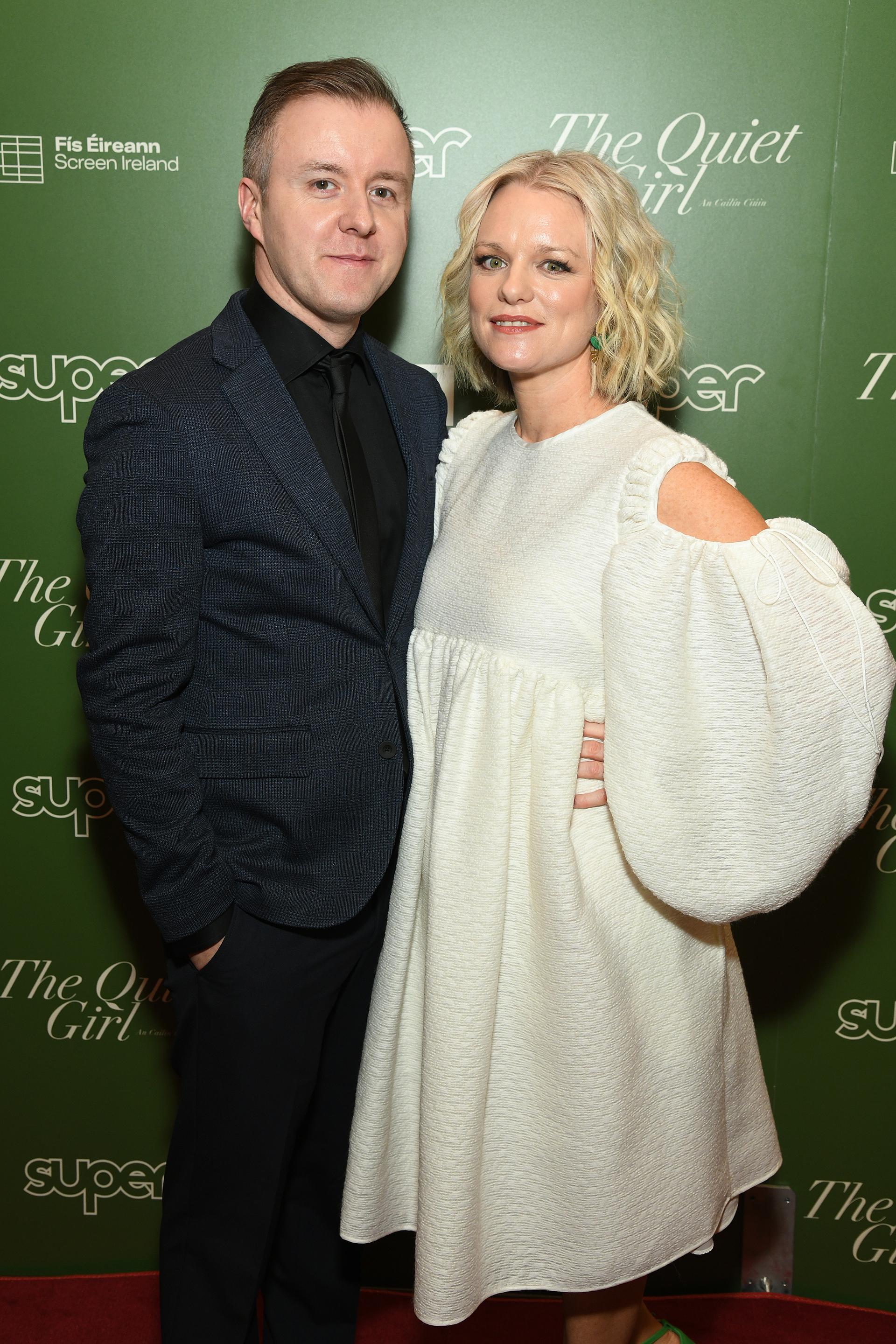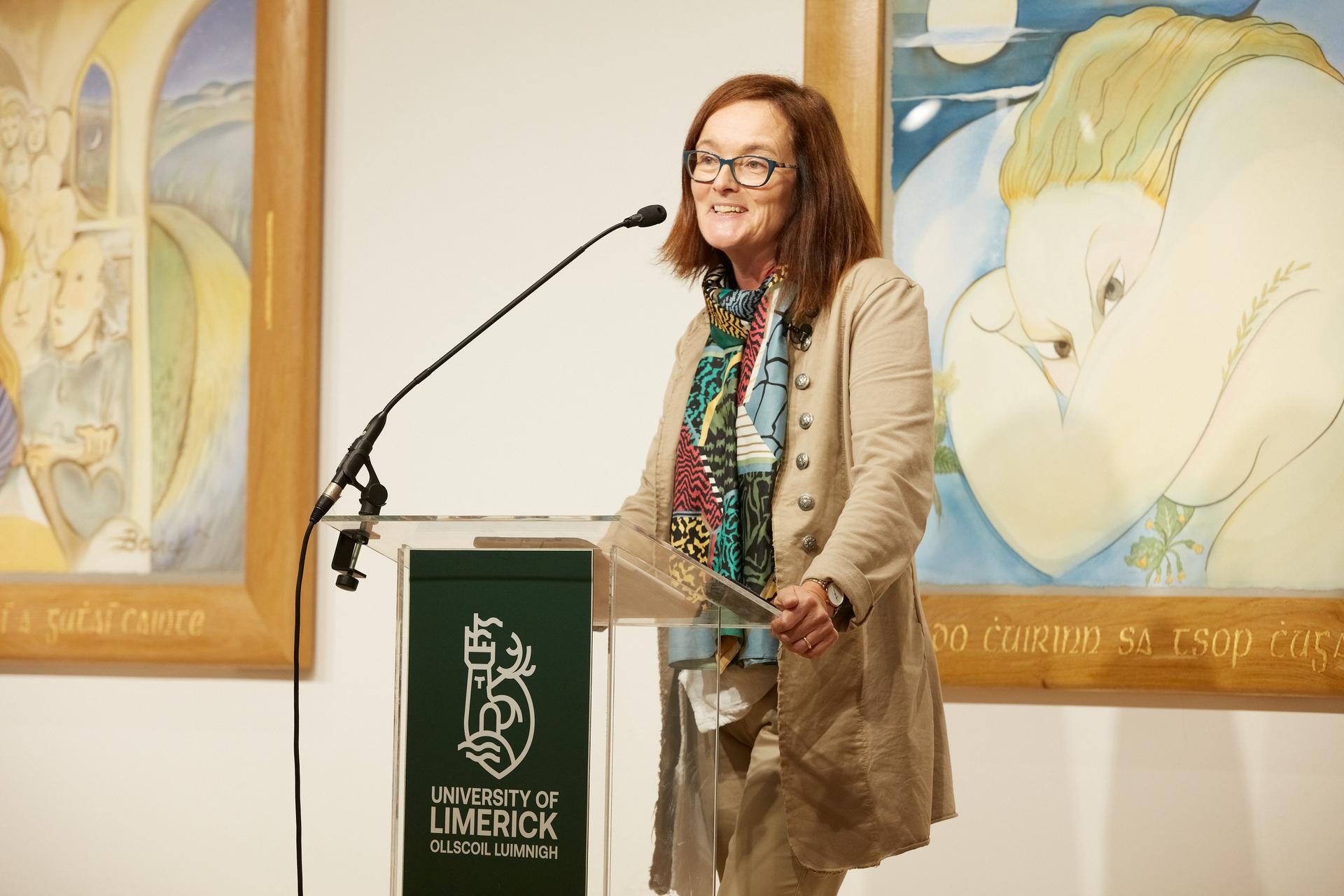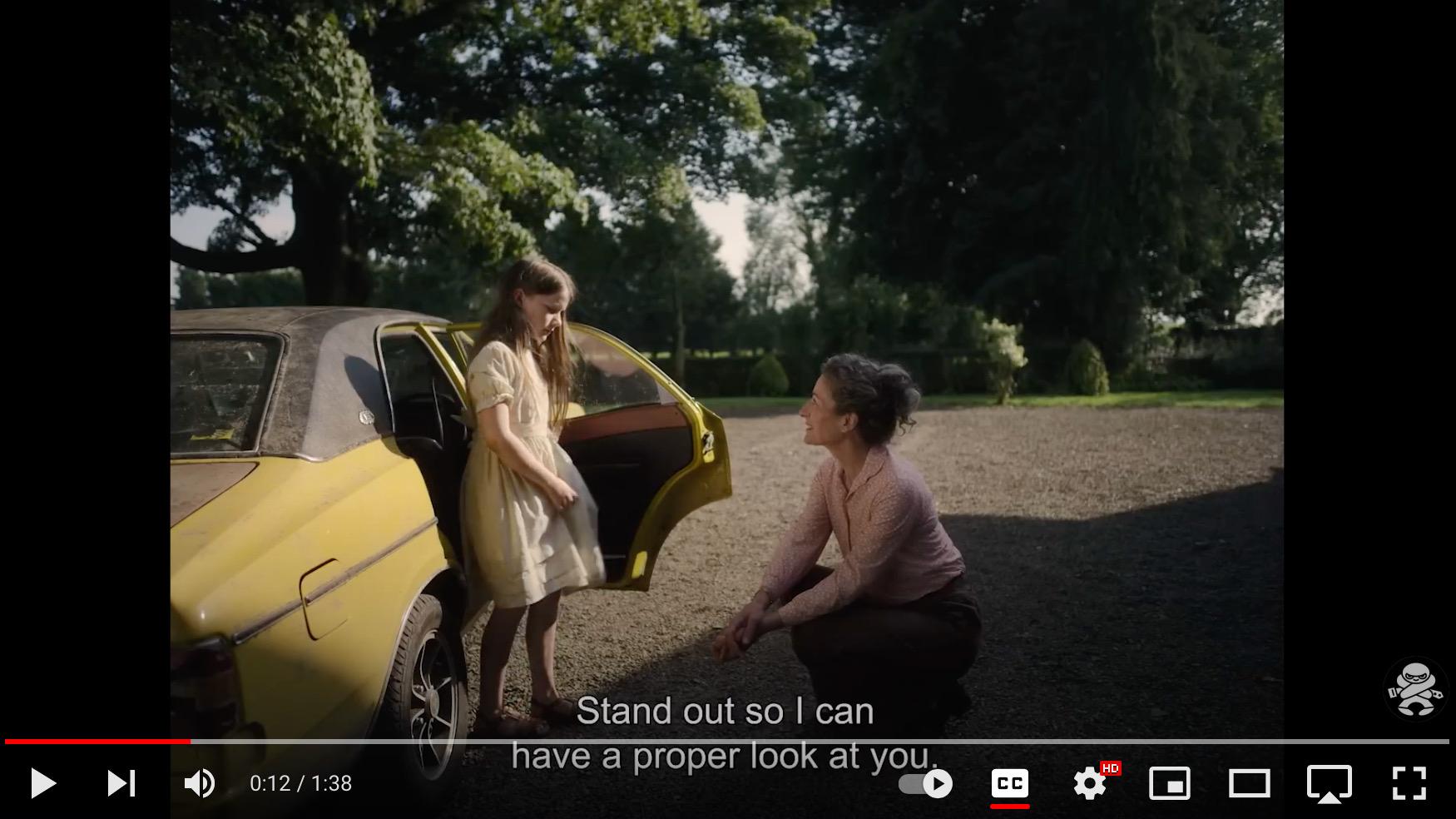Filmmakers hope that Oscar nomination for ‘The Quiet Girl’ renews interest in the Irish language
Screenshot of the movie from YouTube
Film director Colm Bairéad had a complicated relationship with the Irish language growing up in north Dublin in the 1980s.
The filmmaker is fluent in the national language, having been raised in a bilingual household; his father spoke Irish, and his mother, English. But living in a city where few people spoke Irish made him reluctant to use it outside the house.
“I always felt a little self-conscious about speaking it just because at that age, you just want to be the same as all of your peers. You just want to fit in.”
Today, Bairéad has become one the biggest champions for his mother tongue. His new film, “An Cailín Ciúin” (“The Quiet Girl”) has been Oscar nominated for best international film, the first time an Irish movie has ever been selected in this category. “An Cailín Ciúin” is now screening in selected theaters across the US.
The director and other advocates for the Irish language are hoping the film’s unprecedented success will change the relationship many in Ireland have with their native language. As it is, only 2% of the population speaks it on a daily basis.
Both Irish and English were regularly spoken on the set of “An Cailín Ciúin” as the cast and crew had varying levels of proficiency in the native language.
Bairéad speaks in Irish to his wife, the film’s producer Cleona Ní Chrualaoi, and the couple raise their children in an Irish-speaking household.
Ní Chrualaoi said it is the first time an Irish-language film has been given a proper release in British cinemas. The movie has been watched by more audiences in Ireland than any other Irish-language film to date.
Ní Chrualaoi said the film’s success has been breathtaking to witness.
“We call it ‘the little engine that could,’” she said.
“It started off in a very small place,” Ní Chrualaoi said. “It just shows you that you don’t have to have big-name stars and a huge budget to make something really beautiful.”

The performance by the movie’s young lead actress Catherine Clinch has been widely praised as has the film’s cinematography and direction.
Bairéad said the reception to the Irish language in the movie has also taken him by surprise. The film has toured festivals around the world including the US, South Korea and Australia. For some audiences, it was their first time encountering Irish on screen.
“There were certainly people who were surprised that we had our own language at all,” Bairéad laughed.
“Many people commented on the musicality of it, they saw it as something quite exotic I think,” he said.
Bairéad said he believes the film could change the public’s perspective toward Irish in his home country.
“I think people might be more willing to give the language a chance, to give it space and to allow it to be part of our society once more.”
Few fluent Irish speakers
Ireland’s constitution lists Irish as the country’s national language and its first official language. English is recognized as the second official language. But census figures show that while 40% of the population say they can speak Irish, only 1.7% do so on a daily basis.
Learning the language is compulsory at both primary and second level education but despite 14 years of study, the vast majority of Irish do not speak it fluently.
Micheál Ó Foighil, who runs Coláiste Lurgan, a well-known Irish summer school in Galway, said the level of Irish spoken among most school leavers is “shameful.”

Ó Foighil is reluctant to blame the teachers (he was once a teacher himself), or the students, but he is scathing of Ireland’s Department of Education and successive governments for what he sees as their failure to promote the national language.
“I would challenge you to find an education program anywhere in the world that is as badly delivered as the Gaeilge [Irish] learning program that our education system delivers here in Ireland,” he said.
The language has never thrived in Ireland since the formation of the state, Ó Foighil reckoned, and he believes the way Irish is taught is a big part of the problem. Students don’t learn it in the same way as other languages, like French or Spanish, he said and there’s little fun or innovation in the way classes are delivered.
In the Irish college that Ó Foighil runs, teenagers spend three weeks immersed in the language, living among Irish-speaking families and taking part in cultural activities where only Irish is allowed.
The summer camps in the Gaeltacht (Irish speaking parts of Ireland) are a rite of passage for many young teenagers. Ó Foighil said their level of fluency after two summers in the Gaeltacht far exceeds 14 years of conventional learning.
The low proficiency in spoken Irish is even more obvious when compared to nearby neighbor, Wales. An estimated 18% of people speak Welsh on a daily basis, despite English also being the working language there.
“If you go to any country in Europe, their national language is not on the endangered list,” he said.
UNESCO classifies Irish as an endangered language.
‘I’m sorry about my Irish’
Not all Irish language enthusiasts are as critical as Ó Foighil.
Deirdre Ní Loingsigh, director of the Irish Language Center at the University of Limerick, acknowledges the UNESCO classification but suggests that attention should also be drawn to the real vibrancy of the language in some communities beyond the Gaeltacht.
She lives in Nenagh in County Tipperary, a non-Irish speaking part of the country but said she is surrounded by people who engage with the language on a daily basis.
Ní Loingsigh uses it in her local shops, and at the school gates picking up her children, she said, and she encourages people to speak Irish even if they do so haltingly.
A video of Kildare-born actor Paul Mescal speaking Irish on the red carpet at the British Academy Film Awards (BAFTA) ceremony last month went viral in Ireland.
Mescal, who is Oscar nominated for his role in the film “Aftersun,” stumbled as he answered an Irish language TV reporter at the event in London.
He apologized for his lack of fluency.
“I’m sorry about my Irish — it was much better when I was in school,” he said.
Ní Loingsigh said the interview went viral because it is a sentiment that is so familiar to many Irish people — that is, the embarrassment of not being able to speak your mother tongue fluently.
But she said Mescal did what people should do, and that’s take a risk.
“The only way to truly learn a language is to try speaking it, and the response is nearly always positive,” she said.
There are historical reasons why Irish is spoken so little in Ireland. Eight hundred years of British occupation saw the Irish language actively discouraged or suppressed. By 1800, Irish was no longer the language of those who held political, social or economic power in Ireland.
Famine and mass emigration decimated poorer parts of the country where Irish was more widely spoken and many saw English as the language that would better prepare their children for emigration.
But Ó Foighil said it is too easy to blame the past and refuse to take responsibility for the demise of the language today. There have been calls over the years to drop the language as a compulsory subject in schools with the argument that it serves little purpose outside the school setting.
Ó Foighil dismissed those objections.
“What do you mean, where can you use Gaeilge [Irish]? This is Ireland, that should be enough. This is not England. We’re not English,” he said.
The World is an independent newsroom. We’re not funded by billionaires; instead, we rely on readers and listeners like you. As a listener, you’re a crucial part of our team and our global community. Your support is vital to running our nonprofit newsroom, and we can’t do this work without you. Will you support The World with a gift today? Donations made between now and Dec. 31 will be matched 1:1. Thanks for investing in our work!
